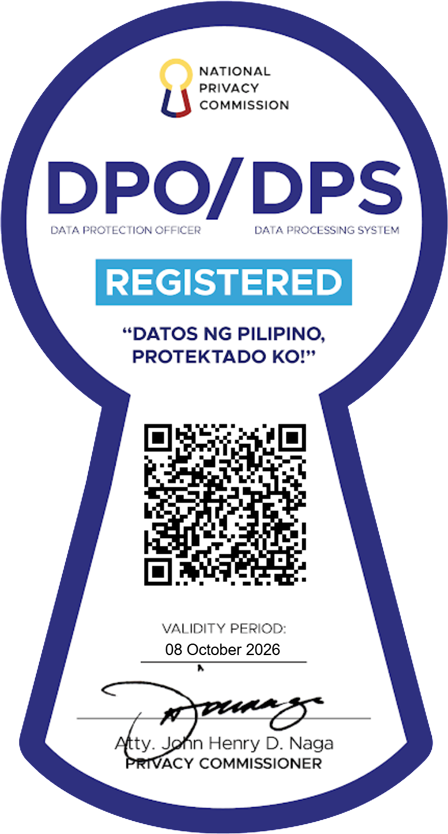Tama ba sa Iyo ang Oral Contraceptive Pills? Mga Salik na Dapat Isaalang-alang
Tinatayang oras ng pagbabasa: 6 na minuto
Mga Pangunahing Takeaway
- Oral contraceptive pill ay isang popular na pagpipilian para sa birth control sa Pilipinas.
- Gumagana ang mga ito sa pamamagitan ng paggamit ng mga hormone upang maiwasan ang obulasyon.
- Ang pagiging naa-access ay nagpapabuti sa pamamagitan ng mga inisyatiba ng pamahalaan.
- Kumonsulta sa isang healthcare provider upang mahanap ang pinakamahusay na opsyon para sa iyo.
Talaan ng nilalaman
Paggalugad ng Oral Contraceptive Pills sa Pilipinas
Ang mga oral contraceptive pill ba ay isang angkop na opsyon sa birth control para sa iyo? Sa Pilipinas, ang mga tabletang ito ay karaniwang pagpipilian para sa mga babaeng naghahanap ng epektibong pag-iwas sa pagbubuntis. Mga oral contraceptive pangunahing gumagana sa pamamagitan ng paggamit ng mga hormone upang maiwasan ang obulasyon. Gayunpaman, mahalagang tandaan na hindi sila nagpoprotekta laban sa mga sexually transmitted infections (STIs). Ang mga side effect at gastos ng mga tabletang ito ay maaaring mag-iba, at may mga patuloy na inisyatiba ng pamahalaan na naglalayong mapabuti ang accessibility para sa lahat.
Pag-unawa sa Oral Contraceptive Pills
Ano ang Contraceptive Pills?
Contraceptive pill, na kilala bilang oral contraceptive pill, ay mga gamot na naglalaman ng mga hormone tulad ng estrogen at/o progestin. Ang mga hormone na ito ay gumaganap ng isang mahalagang papel sa pagpigil sa pagbubuntis pangunahin sa pamamagitan ng pagpigil sa obulasyon at pagbabago ng cervical mucus upang maging mas mahirap para sa tamud na maabot ang isang itlog. Matuto pa tungkol sa mga detalye dito. Para sa komprehensibong paghahambing ng iba't ibang opsyon sa birth control, bisitahin ang ang link na ito.
Paano Gumagana ang Birth Control Pills?
Ang pangunahing function ng birth control pill ay ang pagsugpo sa obulasyon. Pinapakapal din nila ang cervical mucus, na ginagawang mahirap para sa tamud na mag-navigate. Pinagsamang oral contraceptive (COCs) ay partikular na epektibo dahil sa kanilang halo ng mga hormone na nagbibigay ng maaasahang pag-iwas. Tuklasin ang higit pa tungkol sa kanilang mekanismong pagkilos dito.
Mga Side Effects ng Contraceptive Pills
Bagama't karaniwang ligtas ang mga oral contraceptive, maaari silang magdulot ng mga side effect tulad ng pananakit ng ulo, pagbabago ng mood, paglambot ng dibdib, at pagtaas ng timbang. Bagama't bihira, maaaring mangyari ang mga malubhang salungat na reaksyon. Mahalagang kumunsulta sa isang tagapagbigay ng pangangalagang pangkalusugan kung ang mga side effect ay malala o nagpapatuloy. Para sa isang detalyadong listahan ng mga potensyal na epekto, bisitahin ang ang link na ito. Bukod pa rito, unawain kung paano maaaring makaapekto ang mga birth control pills sa iyong kalooban sa pamamagitan ng pagbabasa ang artikulong ito.
Availability at Accessibility sa Pilipinas
Saan Bumili at Mga Gastos ng Mga Pills para sa Pagkontrol ng Kapanganakan
Ang mga oral contraceptive ay naa-access sa pamamagitan ng mga parmasya, klinika, at mga serbisyo ng telemedicine. Bagama't maaaring mag-iba ang pagpepresyo, nag-aalok ang mga generic na opsyon ng mas abot-kayang pagpipilian. Ang karagdagang impormasyon sa mga gastos at pagkakaroon ng pinagsamang oral contraceptive ay matatagpuan dito, at para sa mga progestin-only na tabletas, dito, sa seksyong Saan Mabibili.
Mga Inisyatiba ng Pamahalaan para sa Accessibility
Naging maagap ang gobyerno ng Pilipinas sa pagtataguyod ng mga accessible na opsyon sa birth control bilang bahagi ng mas malawak na pagtulak para sa preventive healthcare, dahil sa mahigpit na mga regulasyong nakapalibot sa aborsyon. Ang mga subsidized o libreng contraceptive ay kadalasang makukuha sa pamamagitan ng Department of Health at mga pasilidad ng pampublikong kalusugan. Maaaring ma-access ang mga detalye sa mga hakbangin na ito dito.
Mga Pagsasaalang-alang Bago Pumili ng Oral Contraceptive
Mga Salik ng Personal na Kalusugan at Pamumuhay
Ang pagpili ng tamang paraan ng pagpipigil sa pagbubuntis ay nangangailangan ng pagsasaalang-alang sa iba't ibang mga kadahilanan tulad ng kasaysayan ng medikal, pamumuhay, at mga partikular na kondisyon ng kalusugan. Napakahalagang makipag-usap sa isang tagapagbigay ng pangangalagang pangkalusugan upang maunawaan ang pagiging angkop ng iba't ibang opsyon sa pagpipigil sa pagbubuntis. Bukod pa rito, tukuyin kung gaano katagal dapat manatili sa birth control sa pamamagitan ng pagbisita ang artikulong ito.
Kahalagahan ng Konsultasyon sa Pangangalagang Pangkalusugan
Bago simulan ang anumang oral contraceptive, ang pagkonsulta sa isang healthcare professional ay mahalaga. Makakatulong ang talakayang ito na matugunan ang anumang mga panganib sa kalusugan at potensyal na pakikipag-ugnayan sa droga. Para sa komprehensibong mga alituntunin kung ano ang dapat isaalang-alang, simulan ang pagkonsulta sa iyong healthcare provider o doktor.
Empowerment Through Informed Choice
Ang paggawa ng matalinong pagpili tungkol sa kung aling paraan ng contraceptive ang gagamitin ay nagbibigay ng kapangyarihan sa mga indibidwal na kontrolin ang kanilang kalusugan sa sekswal at reproductive. Ang edukasyon at konsultasyon ay susi – mahalagang ipagpatuloy ang pangangalap ng impormasyon at talakayin ang mga personal na kalagayan sa isang tagapagbigay ng pangangalagang pangkalusugan upang piliin ang paraan na pinakaangkop sa mga indibidwal na pangangailangan.
Kasama sa pagpapalakas ng iyong sarili ang pag-unawa sa bawat aspeto ng mga opsyon na magagamit mo. Para sa mas detalyadong impormasyon at personal na karanasan, sumangguni sa Magtiwala sa PH, isang nangungunang social enterprise na nakatuon sa pagpapahusay ng mga karapatan sa kalusugang sekswal at reproductive sa Pilipinas. Bisitahin ang aming site dito upang matuto nang higit pa tungkol sa aming maimpluwensyang gawain. Bukod pa rito, tuklasin ang mga nangungunang tip sa pagpaplano ng pamilya para sa mga bagong kasal sa pamamagitan ng pagbisita https://trust.ph/family-planning-tips-newlyweds.
Mga Madalas Itanong
- Ano ang Contraceptive Pills?
- Paano Gumagana ang Birth Control Pills?
- Mga Side Effects ng Contraceptive Pills
- Saan Bumili at Mga Gastos ng Mga Pills para sa Pagkontrol ng Kapanganakan
- Mga Inisyatiba ng Pamahalaan para sa Accessibility
- Mga Salik ng Personal na Kalusugan at Pamumuhay








